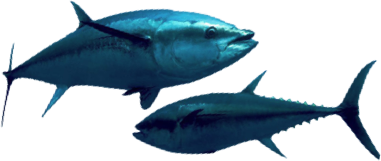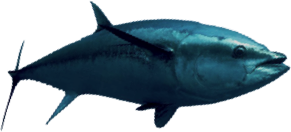Southern Bluefin Tuna (SBT) were heavily fished in the past, with the annual catch reaching 80,000 tonnes in the early 1960s. Heavy fishing resulted in a significant decline in the numbers of mature fish and the annual catch began to fall rapidly.
In the mid 1980s it became apparent that the SBT stock was at a level where management and conservation was required. There was a need for a mechanism to limit catches. The main nations fishing SBT at the time, Australia, Japan and New Zealand, began to apply strict quotas to their fishing fleets from 1985 as a management and conservation measure to enable the SBT stocks to rebuild.
On 20 May 1994 the then existing voluntary management arrangement between Australia, Japan and New Zealand was formalised when the Convention for the Conservation of Southern Bluefin Tuna, which had been signed by the three countries in May 1993, came into force. The Convention created the Commission for the Conservation of Southern Bluefin Tuna (CCSBT). The CCSBT is headquartered in Canberra, Australia.
Some non-Members were active in the SBT fishery, which reduced the effectiveness of the Members' conservation and management measures. The principal non-Members were Korea, Taiwan and Indonesia. There were also a number of other fishing vessels flying flags of convenience, which operated in the fishery. As a matter of policy, the CCSBT has encouraged the membership of these countries.
The Republic of Korea and Indonesia joined the Commission on 17 October 2001 and 8 April 2008 respectively.
The Fishing Entity of Taiwan's membership of the Extended Commission became effective on 30 August 2002.
At its meeting in October 2003, the CCSBT agreed to invite countries with an interest in the fishery to participate in its activities as formal Cooperating Non-Members. Cooperating Non-Members participate fully in the business of the CCSBT but cannot vote. Acceptance as a Cooperating Non-Member requires adherence to the management and conservation objectives of the CCSBT and agreed catch limits. Cooperating Non-Member status is regarded as a transitional measure to full membership and accession to the Convention.
The Philippines, South Africa and the European Union were formally accepted as Cooperating Non-Members on 2 August 2004 (with this status ceasing on 12 October 2017), 24 August 2006 and 13 October 2006 respectively.
The European Union subsequently became a Member of the Extended Commission effective from 13 October 2015. South Africa joined the Commission on 15 February 2016.

